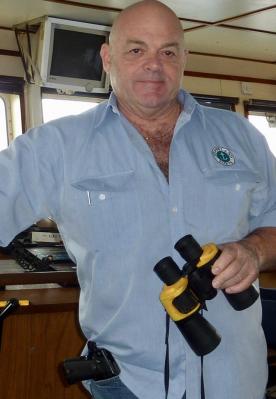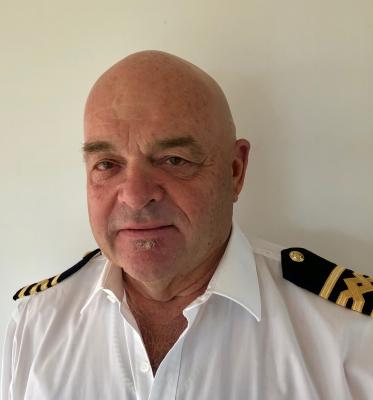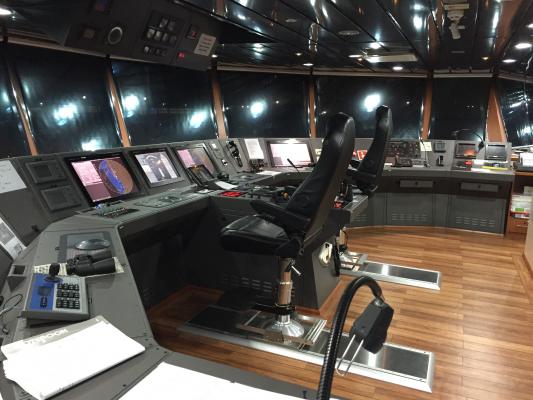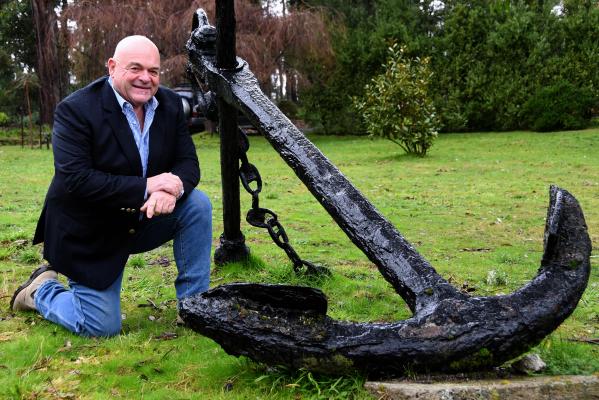
By Jessica Anstice
Encounters with pirates, hurricanes and sinking ships were all part of the job for Rob Anderson – as were long hours and hard work.
The retired ship captain moved to Nar Nar Goon North in 1980 to escape the growing suburbs of Melbourne, as well as the sea.
After working his whole life at sea, the last 40 years as a Ships Master, Mr Anderson believes he is now just an ordinary person in the street – no different to anyone else.
“I may have seen a bit more of the world and had a few different experiences, but I’ve worked my way through life the same as everyone else does. Snakes and ladders – just the same,” he said.
“I guess the only difference is that I can jump on any ship (ships – not boats), any size, any flag, anywhere in the world, turn the key and drive away.”
Mr Anderson was just 15-years-old when he first went to sea on a British flag cargo ship as a ‘deck boy’ – the lowest form of marine growth.
Having never been further from home than Philip Island, he said it was a big adventure.
“Especially in the days before sat-comm, cell-phones, and the internet,” he added.
“It was pretty tough at times, sometimes brutal, but always interesting.”
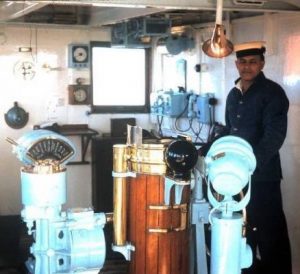
Progressively working his way through the Certificates of Competency as Third Mate, Second Mate, and Chief Mate, Mr Anderson gained his ‘Master of Foreign Going Ship Class 1’ before landing himself a job as Ship Master at age 29.
From there, he was Master of many ships of all shapes, sizes, trades, tasks, and flags in all parts of the world.
“All ‘blue water’ deep sea seafarers don’t really have a ‘love’ of the sea; they never use expressions such as ‘salt in the blood’, for example,” he said.
“They have a love for the job and the way of life, but not for the sea itself.
“Why would you love something that has the capability to smash and kill you in an instant, or send you broke? I have more love for my motorcycles than the sea.”
Mr Anderson was a Torres Strait and Great Barrier Reef marine pilot for 12 years, taking the big ships up and down the inner reef passages.
He was also the marine operations manager for the two biggest offshore operators at the time, and worked four years as harbour master for Gippsland Ports which covers the coast from Mallacoota around the Prom to Inverloch, including the biggest waterway in Australia – the Gippsland Lakes.
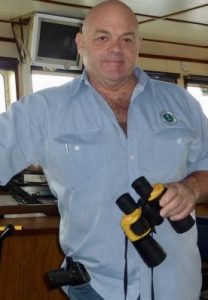
“Ships are very expensive and complicated pieces of machinery operating in a very sensitive environment while performing a myriad of essential tasks that most people take for granted,” he explained.
“No ships – no containers – no export – no fuel. If ships stop, the country stops.
“The demands are high and the risks are great. A moments lack of attention by a Mate on the Bridge can result in catastrophic damage and pollution.”
According to Mr Anderson, a big container ship can carry 18,000 containers – 9000 truck loads in one load, and it can also have about 15 million litres of fuel onboard.
Like many industries, over time Mr Anderson has seen many changes and faced many challenges.
“Ships crew numbers have greatly reduced over the years and when I first went to sea a cargo ship would have a crew of 40; now a giant container ship would have only a total 18 men and women onboard,” he said.
“New ships may now be more highly automated but the workloads and responsibilities for the Master, officers and crew are higher than ever before.”
During his time at Gippsland Ports, Mr Anderson started teaching at a maritime TAFE college in Lakes Entrance, helping more than 300 seafarers gain their Master 4 tickets.
Following that, he went back to sea with the addition qualification as an ‘Unlimited Dynamic Position’ Master driving the very sophisticated and specialised shops that self position themselves using computer thrusters.
With countless experiences and moments to remember, Mr Anderson there are just too many to mention.
“But like a lot of other Australian professional seafarers I have volunteered some of my time over the years to drive ships for Sea Shepherd; as and when it suits me and dependant on the task,” he said.
“Illegal whaling operations in Australian Territorial waters is top of the list.
“I was told that once you look directly into the eye of a whale – you change. I did, and it’s true.”
Mr Anderson was also faced with many traumatic experiences, such as sinkings, fires, hurricanes, typhoons and pirates.
He even witnessed two oil rings sink while he was towing them.
“I’m also a private pilot and a few years ago my beautiful Cessna 172 had an engine failure on take-off from Mackay and I ended up in the sea,” he recalled.
After a lifetime at sea, Mr Anderson was made to retire when he slipped and fell down an external stairway in heavy seas, resulting in an injured knee and hip.
“It meant I was unable to pass the strict medical examination and renew my licences,” he said.
“I walked down the gangway for the last time with at least seven Masters tickets including Australia, UK, Panama, Singapore, Monrovia, Bahamas, Norwegian, and a VicRoads Recreational Boating license.
“Time to hang up the sea-boots – but at 70, I’d had enough anyway!”
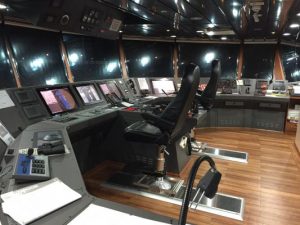
After retiring, Mr Anderson began writing a book to reflect on his experiences at sea – the good, the bad, and the ugly.
A soon-to-be-author, he said he didn’t decide to write a book, the book decided for him.
“Like all seafarers of my generation reading books was an important part of life at sea,” he said.
“No TV nor internet, and long sea voyages meant that books and reading were the only way to pass the time.
“An endless supply of tax exempt grog helped a bit too! Later on I started to make notes of things that had happened to me and stories that I heard which evolved into a random collection.”
His neighbour, friend and very talented and prolific author and illustrated, Alison Lester, eventually convinced him to put his random notes together and present them to an unsuspecting publisher she knew.
The publisher took a chance, and the team at Affirm Press moulded Mr Anderson’s words into shape, and his book ‘When the Ship hits the Fan’ was born.
Yet to be officially released, the book is about anything and everything that came to Mr Anderson’s mind.
“Most people wouldn’t know that working ships don’t carry a doctor nor medic,” he said.
“The Master is the ‘doctor’ and regularly does special training at hospitals; lectures by day and many nights in casualty and also time in the morgue, and a lot of my stories are about some of these things.”
A long time in the making, When the Ship Hits the Fan is set to be released on 28 July.
“For me, it has been quite an experience – more so than I ever would have imagined,” he said.
“Sometimes it struck me pretty hard and writing was difficult, especially thinking back to my earlier childhood. Other times I couldn’t stop laughing. Some pretty weird things have happened along the way!
“But the biggest surprise of all for me was the huge amount of work by so many people ‘behind the scenes’ to turn a memory stick full of words into a book. I am humbled by their efforts and support. Not only are these people hardworking and experienced, they are dedicated – they believe in books.”


